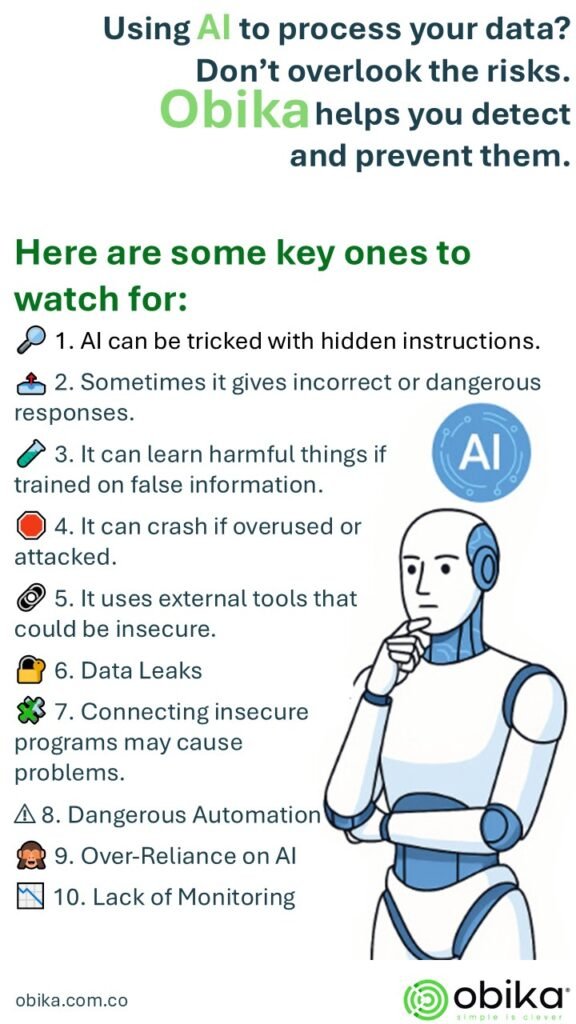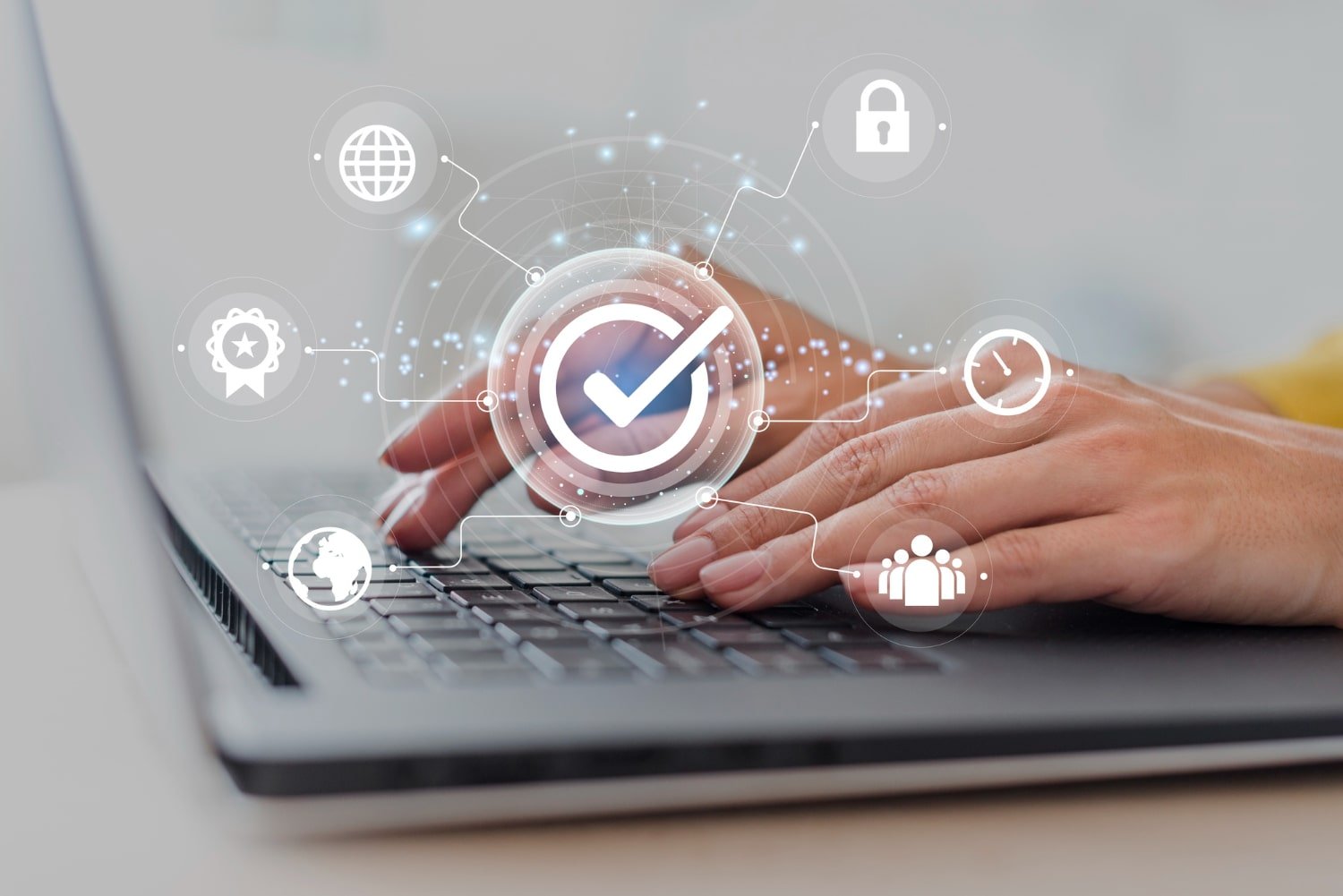Have you ever wondered what could happen if the personal information you share in a chat with artificial intelligence—like your preferences, credit card details, or even your children’s data—could be accessed by third parties without your consent?
Or even worse, what if an AI discriminated against you or gave you a lower score during a job application just because of your gender?
This isn’t fiction. Real cases have already occurred with AI systems—such as chatbots and recruitment platforms—that have put people’s privacy and fairness at risk.

At Obika, we share with you what happened:
🤖 OpenAI ChatGPT (2023) – User data leak due to technical failure
An infrastructure error allowed users to access other users’ conversation history and payment information, including the last 4 digits of credit cards.
👉 This highlights the importance of proper session segregation and backend protection in production AI systems.
💳 Capital One (2019) – Data leak due to misconfiguration
A firewall misconfiguration and the use of AI enabled unauthorized access, exposing sensitive data of over 100 million customers, including credit card numbers and Social Security Numbers.
👉 Lesson learned: full data lifecycle protection in AI environments is critical. The incident cost the company $80 million in fines.
🏥 Google DeepMind & NHS UK (2016) – Misuse of medical data
DeepMind accessed 1.6 million clinical records without consent to train a diagnostic AI. Although not a hack, it was a leak of sensitive personal data without legal authorization.
👉 Ethics and legality in the use of data for AI training are just as important as technical cybersecurity.
🧬 Amazon AI Recruitment Tool (2014–2017) – Algorithmic gender discrimination
The recruitment AI was trained on biased data that favored men, leading to the systematic exclusion of women in the hiring process.
👉 This case shows how bias in training data can lead to automated discrimination, violating fairness principles.



